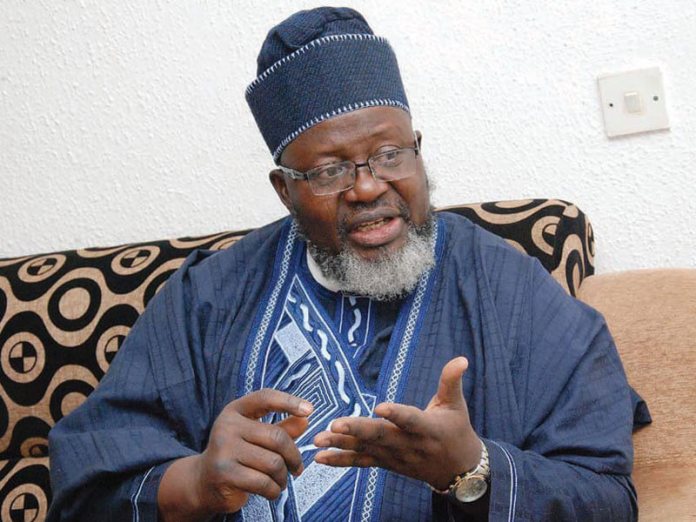The federal government, Wednesday, vowed to continue to lead in Information and Communications Technology, ICT, developments in Africa, despite challenges in the economy.
Mr Adebayo Shittu, the Minister of Communications Technology, made the vow at the opening ceremony of 2018 Information Communications Technology and Telecommunications (ICTEL), exhibition of the Lagos Chamber of Commerce and Industry, LCCI, in Lagos
Shittu said the federal government has outlined different projects and ICT masterplans to ensure the country continued to dominate and lead other African countries in ICT growth.
He said, “We have accepted that Nigeria must take leadership role in Africa’s ICT ecosystem. Therefore, we are amenable to Public Private Partnership, PPP, relationships to drive projects in 2018 and beyond.
“For instance, the ministry has conceived a National ICT Park and Exhibition Centre in the Federal Capital Territory and other parts of the country. We have also proposed the establishment of a National ICT Bank and full implementation of the National Broadband plan, ICT Roadmap 2017-2020 and the implementation of the e-Government Masterplan, all of which are aimed at ensuring efficiency and strong competitiveness in the 21st century”.
Corroborating him, Professor Umar Danbatta, Executive Vice Chairman, Nigerian Communications Commission, NCC, said, ”So far, Nigeria has achieved 22 percent broadband penetration out of the targeted 30 percent before the end of 2018.
“As you may be aware, the country has an auspicious target of 30 percent broadband penetration by end of this year, in line with the National Broadband Plan, 2013-2018.
“In this regard, I am happy to inform you that, so far, and despite teething challenges, we have hit 22 percent threshold of the target.
“With Telecom’s contribution of over nine percent to Nigeria’s Gross Domestic Product, GDP, it is expected that ubiquitous broadband access will deepen this contribution.
“In other words, more access to telecoms/broadband access means higher contribution to GDP, but less access means lower contribution. With better and wider access coverage, the contributions of telecoms to GDP will go from nine percent to a little over 10 percent.
“This realisation on the centrality of broadband to enhancing digital life, which comes with a lot of benefits for individuals and corporate organisations, has informed the decision by the current leadership at the NCC to put broadband penetration topmost on the ladder of its eight-point Agenda.”
In his welcome address, Mr Babatunde Ruwase, the President of Lagos Chamber of Commerce, said there was no better time to harness the benefits of ICT than now when the Nigerian, economy was in dire need of diversification and sustainable recovery.
Ruwase said, “ICT is strategic in driving productivity and efficiency in all sectors of the economy. Today, virtually all sectors leverage ICT for optimal performance.
”This is evident in the financial services sector where electronic banking is now the vogue, the agricultural sector, where government allocates farm inputs through mobile phone to farmers, among others.”

